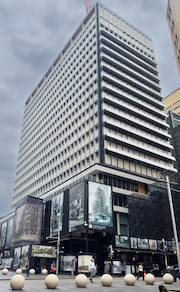Other economic policy
Reminder to the Reserve Bank: Don’t panic but don’t hold back on interest rates

More economists are calling on the Reserve Bank to move quickly to lower interest rates, in response to Trump’s tariff moves, which will certainly slow world growth and could precipitate a worldwide recession, from which Australia would not be immune.
A few dates set the context for these calls:
- Tuesday 1 April – the most recent RBA monetary policy decision;
- Thursday 3 April (Australian time) – Trump’s 2 April “liberation day”;
- Tuesday 22 April – pre-election day voting opens;
- Wednesday 30 April – March quarter CPI released;
- Saturday 3 May – federal election;
- Tuesday 20 May – next scheduled RBA monetary policy decision.
Former RBA Governor Bernie Fraser and former RBA Board member Warwick McKibbin have both been on Radio National calling for the RBA not to wait and to call an emergency meeting to bring forward cuts in interest rates. So too has Stephen Koukoulas.
Their general criticism of the RBA is that in any situation where economic conditions have changed it is usually slow to respond – a criticism that has often been linked in these roundups.
In its Apri1 1 statement accompanying its decision not to move interest rates, it made no reference to the imminent announcement of Trump’s tariffs. even though he had given notice that April 2 would be the big day. In fact in the subsequent press conference the governor said that there had been no consideration of lowering interest rates at that meeting.
There is no reason the Reserve Bank cannot call an emergency meeting; indeed there are precedents where there have been emergency changes in interest rates in response to world events.
Some may say that a move now, during an election campaign, would be seen as political interference – a boost for Labor – but the RBA is always at pains to explain that it ignores the political cycle.
Another argument against reducing rates is that Trump’s tariffs may have an inflationary effect on Australia. Expectations of interest rate cuts, and an observation that the Australian economy is highly responsive to commodity prices and to the state of the Chinese economy, have seen a sharp fall in our currency, which will have inflationary effects.
That may be the case, but the effects of a world downturn would be deflationary. Even if the CPI were driven higher by rising prices of some imports, this should be of far less concern than price rises in the domestic economy, which can have their own reinforcing positive feedback effects.
And others suggest that there has been an overreaction to Trump’s tariffs, both here and worldwide.
McKibbin draws attention to modelling predicting that Australia is unlikely to experience a recession. Nevertheless he is in favour of an anticipatory cut in interest rates. Presumably that’s based on the idea that when there is a risk of increasing unemployment it is better to head it off, rather than to wait to respond until unemployment actually rises. It takes a long time for labour markets to recover from a shock. Some people, once they lose their job, never come back to the labour force.
The government would certainly appreciate it if the RBA lowered rates before voting starts, but it is revelling in the message from financial markets that the coming year will see three or four cuts in interest rates. It would be wise for the government to be somewhat constrained in its language, however, lest the economy is hurt more by Trump’s tariffs than people have so far predicted.
The Greens on tax reform: restoring capital gains tax neutrality
Pressure for a market-friendly tax reform, in line with established economic theory, is coming from an unexpected quarter.
The Greens.
They have been laying out their policy priorities, in case they will be negotiating reforms with a minority government.
In order to rein in property speculation, and to collect more revenue, they have called for an abolition of the 50 percent capital gains discount and negative gearing allowances. These breaks would be limited to one investment property, and they would be grandfathered. That is, they would not be available for new property investments.
Those conditions are not surprising. But a notable feature is that the asset base for capital gains would be indexed by inflation.
That would be a return to the principle of tax neutrality between capital gains and other income, introduced as a major reform by the Hawke-Keating government in 1985.
It was undone by the Howard government in 1999, who abolished indexation and introduced the 50 percent concession. These changes were at the behest of the finance sector, who wanted a tax regime more supportive of “financial dynamism” – i.e. financial speculation. That tilted the tax incentives away from long-term wealth-building investment and towards quick turnover of existing assets, such as housing. For those interested in the details, there is a 2009 paper I prepared for Taxwatch: The case for restoring capital gains tax neutrality.
Restoring neutrality through indexation is a far better proposal than Labor’s 1999 election promise to reduce the discount to 25 percent, and similar poorly-considered suggestions by other wannabe reformers. The smaller that discount, the more likely the CGT system will be taxing nominal capital gains resulting from inflation, tilting the system even further away from tax neutrality and discouraging long-term investment.
Labor should welcome the policy, because it restores one of their most important economic reforms, but on anything to do with capital gains taxes the Albanese government is frozen like a rabbit in a headlight. The Coalition is even less likely to go for it, because the present system was one of Howard’s “reforms”, and it’s doubtful if anyone in the Coalition front bench understands the basic mathematics of inflation and indexation.
That means support for this much-needed reform will have to come from others on the so-called “crossbench”.